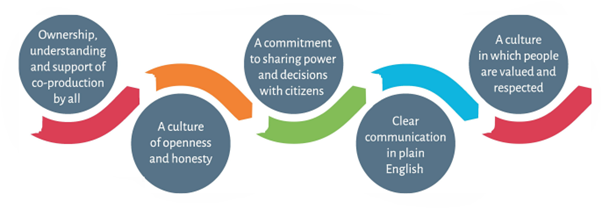South Yorkshire ICS’s Inclusive Cultures Programme
The ICS commissioned an Inclusive Cultures Partnering Programme for Black and Minority aspiring leaders. The programme was established to positively disrupt the traditional norms around hierarchy, culture and power that contribute to racism and to create a strategic cultural and systemic change.
The first cohort of the ICS an Inclusive Cultures Partnerships Reciprocal Mentoring Programme started its one-year duration in September 2021, working with Shapiro Consulting Ltd.
About the programme
There are 17 reciprocal mentoring pairs, each consisting of an ‘established’ board-level leader and an ‘aspiring’ leader, not currently working at a senior level.
The pairs are drawn from all the current CCGs, Rotherham Doncaster and South Humber NHS Foundation Trust and Barnsley Hospital NHS Foundation Trust. Following preparatory workshops in October 2021, current programme activity is focussed on the mentoring pairs getting to know each other and understanding how they can support each other to achieve benefits in the following areas:
- Career development at an individual level – it is well-documented that mentoring produces good results in this area.
- Positive cultural development for the emerging ICS in respect of how it treats and engages with BAME staff.
Alongside the development of mentoring pairs, the programme faculty have provided 1-1 and group supervision for all participants. As well as this, the established Steering Group continues to meet to bring together key themes from the mentoring pairs and plan actions accordingly.
At recent supervision sessions, the faculty team measured progress against outcomes, and found that there had been a noticeable shift in:
- The level of positive support experienced and felt by BAME aspiring leaders
- The level of Trust for ICS senior leaders felt by BAME aspiring leader, which had markedly improved
- Personal confidence of aspiring leaders
- The number of promotions gained by aspiring leaders
- The agency of established leaders in changing their own personal approach and viewpoint
- The commitment from established leaders in changing the expertise of BAME colleagues
Colleagues on the programme have also contributed to the ICS senior appointments process and the development of the ICS Equality, Diversity and Inclusion (EDI) strategy.
Next Steps
Whilst there have been some very positive stories, the programme is in its early stages and the task is now to ensure that the activity undertaken and the time spent produces a positive and long-lasting cultural impact for the ICS. To achieve this, the following actions are planned:
- A joint review and planning workshop for all programme participants and ICS EDI leads, to turn learning into action. This will take place in May 22 and will have input from Gavin Boyle.
- Kathryn Singh as programme sponsor to task the programme’s organisational sponsors (the CEO / Chief Officers of the participating organisations) with reaching into their organisations and developing the learning from the programme by engaging with participants
- More steering group meetings with increased shared accountability for joint action.
This is a programme with an immense wealth of expertise gained from experience and listening, and the key task will be to harness learning and apply it bravely to the ICS as its culture develops.


